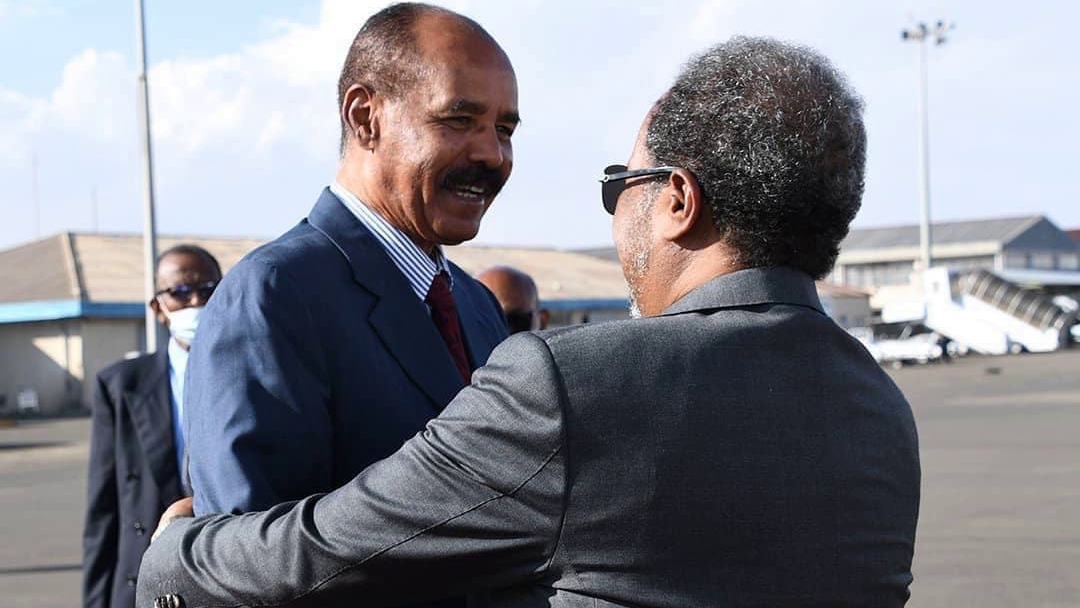The ongoing “bargaining of actions” between Ethiopia and its opponents could have diametrically opposite consequences: from direct escalation to moving the dispute towards a constructive search for compromise.

“Any steps, even symbolic ones, can have decisive impacts on the array of accumulated contradictions.”
A defense cooperation agreement, military bases and an ambassador appointment: what’s next?
By the end of the summer, after a brief lull, the confrontation, which is broadly determined by Ethiopia’s ambitions to gain direct access to the sea, took a new turn. In a short period of time—just over a month—several significant events occurred at once, effectively transferring the conflict from a purely political to a military-political channel.
Shortly after news of Somaliland units being sent for training in Ethiopia emerged—unequivocal confirmation of deepening contacts between Addis Ababa and Hargeisa—the governments of Somalia and Egypt formally announced the conclusion of a Defense Cooperation Agreement, and a few days later the first batches of Egyptian equipment and weapons were delivered to the port of Mogadishu. In response, according to a number of sources, Ethiopia sent an ambassador to Somaliland, a de facto recognition of the country’s independence, and Ethiopia also began deploying military bases on the border with Somalia. Along with these developments, Egypt and Somalia had already routinely announced that joint military exercises will soon be held. Thus, as a result of a consistent escalation, which included, in chronological order, a war of narratives, the involvement of external players and, finally, a transition to a direct demonstration of military power, Ethiopia, Somalia and Egypt found themselves on the brink of a very real armed conflict.
At the same time, some countries—Turkey and Djibouti—were making efforts to find a compromise or at least partial de-escalation: in particular, the Djibouti government declared its readiness to grant Ethiopia direct control over one of its ports, which, however, a month later, has still not aroused the interest of Addis Ababa. It seems that today the deal with Somaliland may be considered sacrosanct for the Ethiopian side. Firstly, the port of Berbera is superior in its technical characteristics to the proposed alternative. Secondly, even a direct lease of one of the Djiboutian ports will not solve the problem of diversification of transit routes for Ethiopia. Thirdly, and finally, the project for Ethiopia to gain access to the sea through the port of Berbera is at the same time a large-scale economically motivated plan to transform this port into a major regional hub, one of the key beneficiaries of which is the company DP World—in other words, the UAE.
At the same time, neither Egypt, Ethiopia nor Somalia (especially Ethiopia and Somalia!) are ready for a full-scale war—the numerous internal problems of these states deserve consideration in a separate article. However, as the experience of world and regional wars of the past shows, the beginning of hostilities is seldom a consequence of some conscious choice of the acting subjects. On the contrary, the tightening of the escalation spiral in the conditions of “bargaining in actions” creates favorable conditions for the outbreak of hostilities due to some careless step of any one of the “emotionally driven” parties.
Undoubtedly, in a situation of such tangible tensions not only for individual actors, but also for the entire region, any, even symbolic, steps can make decisive impacts on the array of accumulated disagreements. Thus, in the first half of October 2024, the parties in a sense exchanged public steps, though these steps were at the same time, by no means, obvious in their meaning. In Ethiopia, president Zewde Sahle-Work resigned, who, despite her primarily representative function, nominally headed the country’s foreign policy. The first female president in the history of Ethiopia was replaced by Taye Atske Selassie, who until recently held the post of Minister of Foreign Affairs. Although this reshuffle should be considered taking into account not only the external, but also the internal context: the election of a person as president who at one stage of his career held the post of ambassador to Cairo. This move can also be regarded as a non-verbal signal to the Egyptian side about Ethiopia’s unwillingness to follow the path of escalation. As for Somalia’s actions, its president Hassan Sheikh Mohammed traveled to the Eritrean capital Asmara on October 9, 2024, for talks with his counterpart Isaias Afewerki. Demonstrating mutual support between the two states in the confrontation between Mogadishu and Addis Ababa, this visit can hardly be interpreted as an attempt to provoke the latter. On the contrary, this latest manifestation of closeness between Eritrea and Somalia is more likely to have a restraining effect on Ethiopia’s policy in the region. However, in the context of an extremely tense situation, any ambiguity in the interpretation of the same gesture by different players could become a catalyst for the transition to a new stage of escalation.
Ivan Kopyttsev, a political scientist, junior research fellow at the Center for the Study of North Africa and the Horn of Africa at the Institute of African Studies of the Russian Academy of Sciences; a research intern at the Center for Middle Eastern and African Studies at the Institute of International Relations of the Moscow State Institute of International Relations of the Ministry of Foreign Affairs of the Russian Federation, exclusively for the magazine “New Eastern Outlook”
